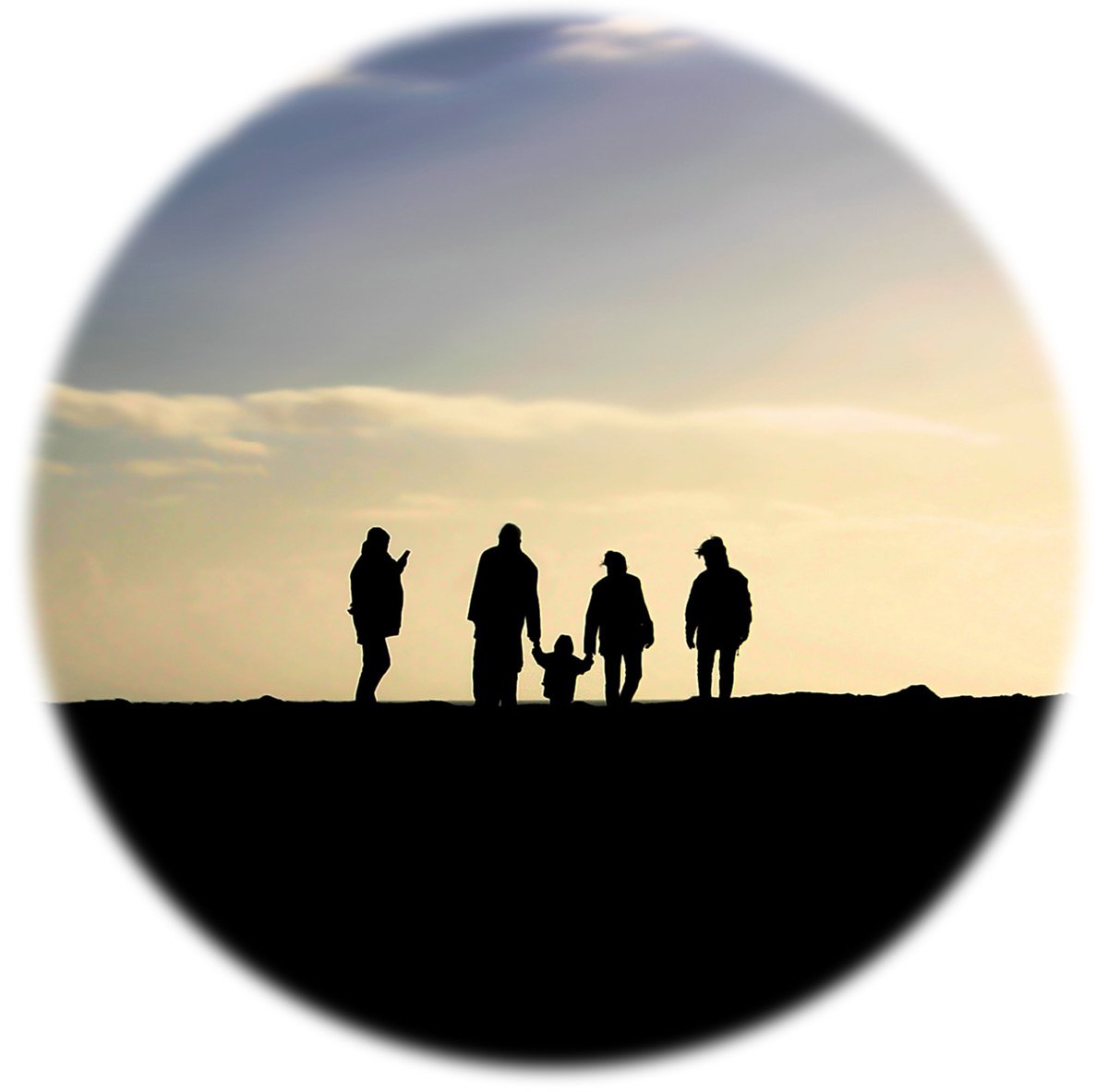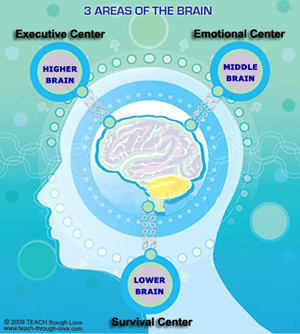4 Keys to Shifting Negative Behavior

The Final Key
RE-WIRE YOUR BRAIN
The difference between what we know about the brain today and what we knew about the brain 30 years ago is vast and of monumental importance to raising healthy children.
Once you understand a few key facts about brain development and how children learn best, it will be hard to ignore the science which supports a relational approach to raising, disciplining and educating children.
You've learned that Behavior = Communication
But, are you still struggling to build cooperation and tempted to use punitive discipline to try and "change" behavior? Disengage from the resistance and a never-ending battle-of-wills and start connecting with your children with your heart, mind and soul!
Real change is possible!
♥ Behavioral change happens through relationship. ♥
At birth, an infant is born with billions
of neurons but very few connections.
Although we are born with all the nerve cells we'll ever need, they are small and largely unconnected to the different parts of the brain.
Good thing though, if they weren't the size of our head would not allow us to travel down the birth canal.

As we grow and experience life, at first through interactions with our family and close relatives and later though our peers and the world, our brain circuits begin to wire up.
Through interaction, our neurons communicate to connect to other cells and make important pathways to various parts of the brain.
If those vital connections are not made, a child can be deprived of access to the higher brain functioning he will need later in life.
90% of a child's brain growth and organization
happens in the first 5 years.
What does brain science have to do with parenting?
Everything!
ABC's of Conscious Parenting

Next, we'll explore the B in the ABCs of Conscious Parenting to see how brain and child development influence your child's behavior and how negative experiences can inhibit or aid brain development.
You want your child to be able to regulate and assimilate emotions and experiences which leads to learning and the ability to interact with others and form healthy intimate relationships.
It is through our responses that children learn about the world.
Without regulation,
learning cannot happen
and regulation cannot happen
without attachment.
Many of the behaviors we expect children to learn and remember are often quite inappropriate for their development. Even older children, who seem to be able to "know right from wrong," do not always have the resources, experience or cognitive function to make the best choices.
The Three Tiered Brain
The brain develops from back to front and from the inside out.

The most primal level resides at the bottom and deals with survival. This is often called the reptilian brain because, in evolutionary terms, it reaches the level of reptile development.
The second tier is the mid-brain and deals with emotion and memory. It contains the amygdala and the hippocampus and is often referred to as the "seat of learning."
The uppermost tier is the higher brain and is involved in decision making. It houses language, the sense of self and the skills required to think, predict, plan and empathize.
Survival Center - (Lower brain - brainstem) This area is fully developed at birth and handles basic instincts and functions to sustain life and movement. This area regulates breathing, digestion, heart rate, sleep, hunger, body temperature etc. and is responsible for the fight, flight or freeze response.
- Infants operate from the survival center and are unable to regulate their own systems. They must rely on a connected caregiver to lend their coping abilities.
Babies can be set off by light, touch, relocation, a wet diaper, noise, being alone or simply by being put down. When a young child's alarm systems go off, he depends on you to soothe him.
Emotional Center - (Mid-brain - Limbic system) The developmental focus is ages 0-4. This area processes memory, emotions, the response to stress and is responsible for nurturing, caring, separation anxiety, fear, rage, social bonding and hormone control.
- This is the area of focus of development in the early childhood years. Toddlers and preschoolers are operating from primarily from the limbic system or the emotional brain.
Self-expression, communication of needs and reactions to the world are expressed in the form of feelings (sometimes gigantic ones). And it is all flowing from the mid-brain.
Executive Center - (Higher brain - pre-frontal cortex) The is the last area to be established and development continues through the mid-20s. There are developmental spurts at approximately ages 5-6; 11-12; and around 15.
- This is the decision making center and responsible for rational thought, problem-solving, planning, attention, creativity, self-awareness and understanding and interpreting emotion.
Children, at different stages, have varying levels of access to the executive functions of the brain. Without the time to amass an array of emotional and physical experiences, their brains cannot always successfully predict, plan or react properly hence they may fail to act responsibly.

There is a misguided notion that children should be more independent, faster, earlier and better to achieve success.

It is an unrealistic goal that places tremendous pressure on each generation to achieve the impossible - more than 25 years of brain development and experience in only a few short years.
Some parents may look forward to age 18 as if that is the magic age of adulthood, but the human brain has a good five years to go until they can be considered fully functional.
Appropriate Expectations
We spoke of paradigms in the last lesson and how our filters are established. Babies, based on the responses they receive from their caregivers, form internalized representations of others and of their own selves.
As your child grows, his filter or paradigm blueprint, will organize his systems of thought, memory, beliefs, emotions, expectations and inform his brain on how to react in various situations.
Child development unfolds uniquely for each child.
Having developmentally appropriate expectations will help you feel less frustration and take your child's behavior less personally.
Self-regulation and socially acceptable behaviors
take time to develop.
take time to develop.
Despite giving the appearance of a rather collected and resourceful ten year old, your child is not capable of relying on rational thought or considering outcomes when faced with an unstable and inexperienced emotional brain and possibly an immature regulatory system.
Trusting secure relationships support cognitive,
emotional and social development.
Children fluctuate as they integrate and develop new skills and abilities to master their world.
Child Development
Ages & Stages
Ages: 0-8
Ages: 6-12
Ages: 12-15
Ages: Late Teens
Child Development Guide
Child & Family Web Guide
Your patience and acceptance of your child's need to regress and alternately show his independence is crucial to his successful reorganization.
The following links are resources that list more complete information about the ages and stages of child's development.
Use this as an approximate guide to your child's physical, motor and social-emotional development.
Until next time...
Homework
 1. Read and educate yourself about your child's stage of development, temperament and personality traits.
1. Read and educate yourself about your child's stage of development, temperament and personality traits. 2. Release your hidden fears that control your subconscious behavior through mindful practices and stress management.
3. Re-evaluate limits and rules for age-appropriateness.
4. Eliminate as many outside stressors and toxic elements as you can from your home environment. Create safety.
What do you think? I love hearing from you, so leave me a comment below. Share your stories, post your challenges and if you benefited from this article, consider sharing it with a friend!
comments powered by Disqus
Ready to take the next step?
I hope you've enjoyed this mini-series and can't wait to hear how it is going in your family!
Parenting E-Course Key Four: Return to Key Three
Parenting E-Course Key Four: Return to Key Two
Parenting E-Course Key Four: Return to Key One
Return to Home
This online course and its content is copyright of ©TEACH through Love 2011-2018. All rights reserved. Any redistribution or reproduction of part or all of the contents in any form is prohibited other than the following:
You may not, except with express written permission, distribute or commercially exploit the content. Nor may you transmit it or store it in any other website or other form of electronic retrieval system.

